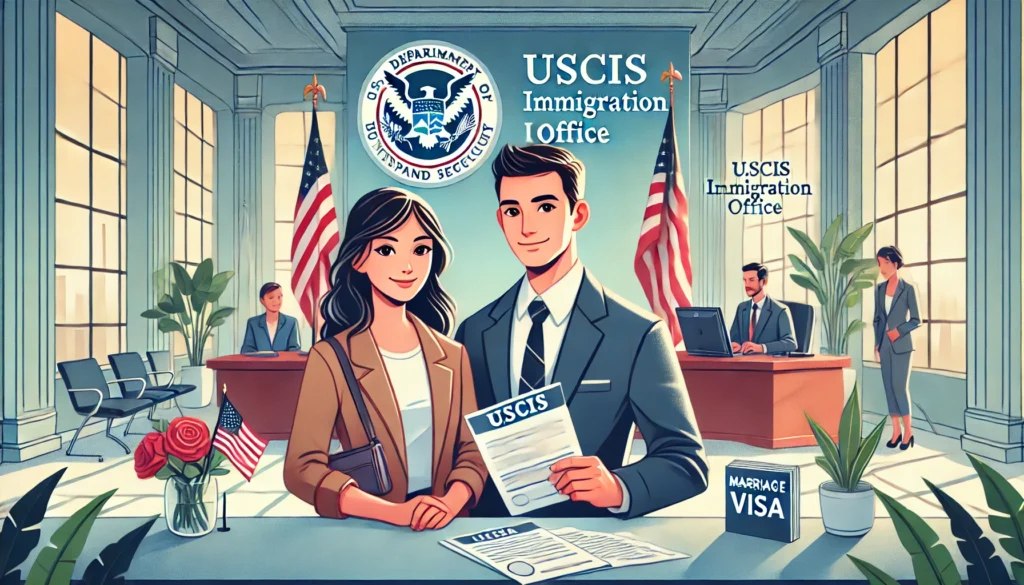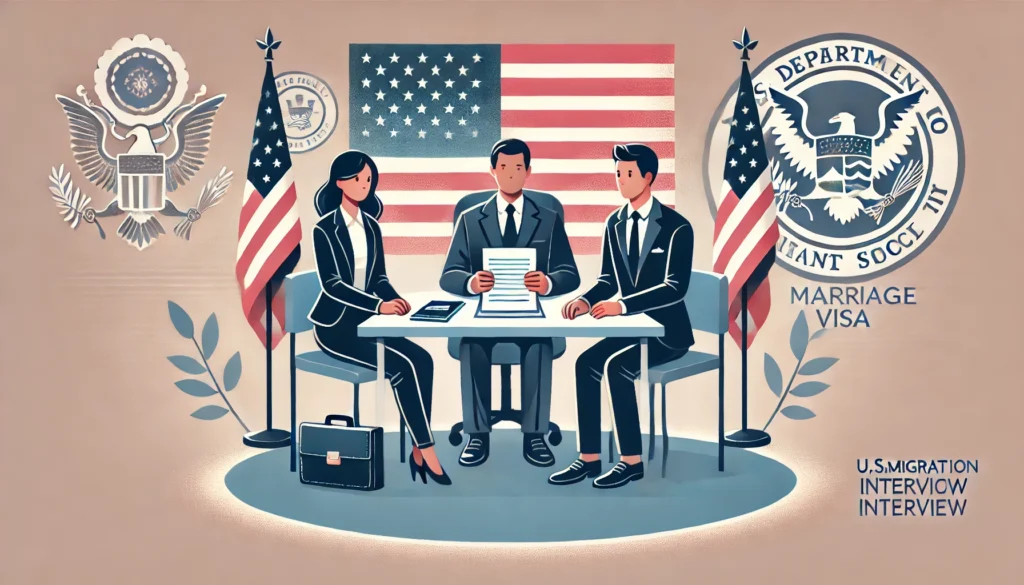Introduction
Failing a marriage visa interview can be a disheartening experience, but it does not necessarily mean the end of your immigration journey. The interview is a critical step in the process, as U.S. Citizenship and Immigration Services (USCIS) or consular officers evaluate the authenticity of your marriage and your eligibility for a visa. However, failure to prepare thoroughly or provide sufficient evidence can lead to setbacks. If you fail the interview, understanding the reasons behind the decision and knowing your options for moving forward are essential. This guide explains the possible outcomes of a failed marriage visa interview, how to address them, and what steps you can take next to strengthen your case.
Reasons for Failing a Marriage Visa Interview
1. Insufficient Evidence of a Bona Fide Marriage
USCIS or consular officers require substantial proof that your marriage is genuine. If you fail to provide adequate documentation, the officer may suspect that the marriage is solely for immigration purposes. Demonstrating the authenticity of your relationship is one of the most critical aspects of the process.
Examples of Insufficient Evidence:
- Lack of photos or joint documents that demonstrate a shared life together.
- Contradictory answers during the interview, which can create doubts.
- No evidence of shared financial responsibilities, such as joint bank accounts or rental agreements.
- Limited or no communication records, including emails or text messages.
2. Inconsistent Answers
Inconsistent or contradictory answers between spouses can raise red flags. Even minor discrepancies in your responses can cause doubt about the authenticity of your relationship.
Examples of Inconsistencies:
- Different accounts of how you met and the progression of your relationship.
- Mismatched details about daily routines, shared hobbies, or family dynamics.
- Contradictory statements about future plans, such as where you intend to live or whether you plan to have children.
- Inaccuracies in recalling significant dates, such as your wedding day or anniversaries.
3. Failure to Meet Financial Requirements
The sponsoring spouse must meet income thresholds to file Form I-864 (Affidavit of Support). If you fail to demonstrate sufficient financial resources, your application may be denied.
Examples of Financial Issues:
- Insufficient income to meet the required 125% of the federal poverty level.
- Lack of supporting documentation, such as tax returns, pay stubs, or employment verification letters.
- Inability to secure a joint sponsor if the primary sponsor’s income is inadequate.
4. Errors or Misrepresentation
Providing false information, omitting crucial details, or failing to disclose prior marriages or criminal records can lead to immediate denial. Transparency and accuracy are crucial to avoid these pitfalls.
Examples of Misrepresentation:
- Failing to report a previous marriage or divorce.
- Misstating personal information, such as birthdates or employment history.
- Submitting forged or altered documents.
Immediate Outcomes of a Failed Interview
- Request for Additional Evidence (RFE):
- USCIS may issue an RFE if specific documents or clarifications are missing. You will have an opportunity to submit the requested information within a specified timeframe.
- Notice of Intent to Deny (NOID):
- A NOID indicates that USCIS intends to deny your application but allows you to respond with evidence to address their concerns. This is an opportunity to salvage your application by addressing gaps or errors.
- Denial:
- If the officer concludes that the marriage is not bona fide or other eligibility criteria are not met, the application may be denied outright. You will receive a denial notice outlining the reasons.
- Referral to Fraud Investigation:
- If the officer suspects fraud, your case may be referred for further investigation, potentially leading to legal consequences. This can include interviews with friends and family or a home visit to verify your relationship.
Steps to Take After a Failed Marriage Visa Interview
1. Understand the Reasons for Failure
- Review the denial or NOID notice carefully to understand the specific reasons for the decision.
- Identify gaps or errors in your application and documentation, and take notes for future reference.
- Consider the officer’s perspective and address their concerns with clear and convincing evidence.
2. Consult an Immigration Attorney
- Seek legal advice to evaluate your options and determine the best course of action.
- An attorney can help you respond to a NOID, file an appeal, or reapply if necessary.
- Experienced legal guidance can also ensure that your subsequent applications are error-free and well-documented.
3. Prepare a Stronger Case
- Gather additional evidence of your bona fide marriage, such as:
- Joint financial accounts, leases, or utility bills.
- Photos from family gatherings, vacations, or day-to-day activities.
- Communication records, including phone logs, text messages, and emails.
- Affidavits from family and friends attesting to your relationship’s legitimacy.
- Address any inconsistencies or errors highlighted in the denial notice with detailed explanations.
4. Appeal the Decision
If your application is denied, you may file an appeal with the Administrative Appeals Office (AAO). This process involves submitting Form I-290B and a detailed brief explaining why the decision should be overturned. Appeals are typically time-sensitive, so act quickly.
5. Reapply
In some cases, starting a new application with stronger documentation and preparation may be the best option. Ensure that you address all issues raised in the previous application and provide updated, comprehensive evidence.
How to Avoid Future Failures
- Thorough Preparation:
- Practice answering common interview questions with your spouse to ensure consistency and confidence during the interview.
- Review your application and supporting documents together, ensuring all information is accurate and up-to-date.
- Organize Your Evidence:
- Create a binder with clearly labeled sections for photos, financial records, and correspondence. Well-organized evidence makes a positive impression and simplifies the review process.
- Stay Consistent:
- Ensure both spouses provide consistent answers during the interview. Minor discrepancies can lead to further scrutiny, so preparation is key.
- Seek Professional Guidance:
- Work with an immigration attorney to review your case and prepare for the interview. Legal advice can help identify potential weaknesses in your application and strengthen your overall case.
- Double-Check Documents:
- Verify that all documents are complete, accurate, and properly formatted before submission. This reduces the likelihood of RFEs or delays.
Conclusion
Failing a marriage visa interview can be a challenging setback, but it is not the end of the road. By understanding the reasons for failure, seeking legal guidance, and addressing the issues in your case, you can take meaningful steps toward achieving your immigration goals. Whether through responding to a NOID, filing an appeal, or reapplying with stronger evidence, persistence and thorough preparation can help you succeed in the marriage visa process and build your future together in the United States.
Remember, setbacks in the immigration process are often opportunities to improve your application and strengthen your case. With patience, determination, and the right support, you can overcome these challenges and move forward with confidence.


